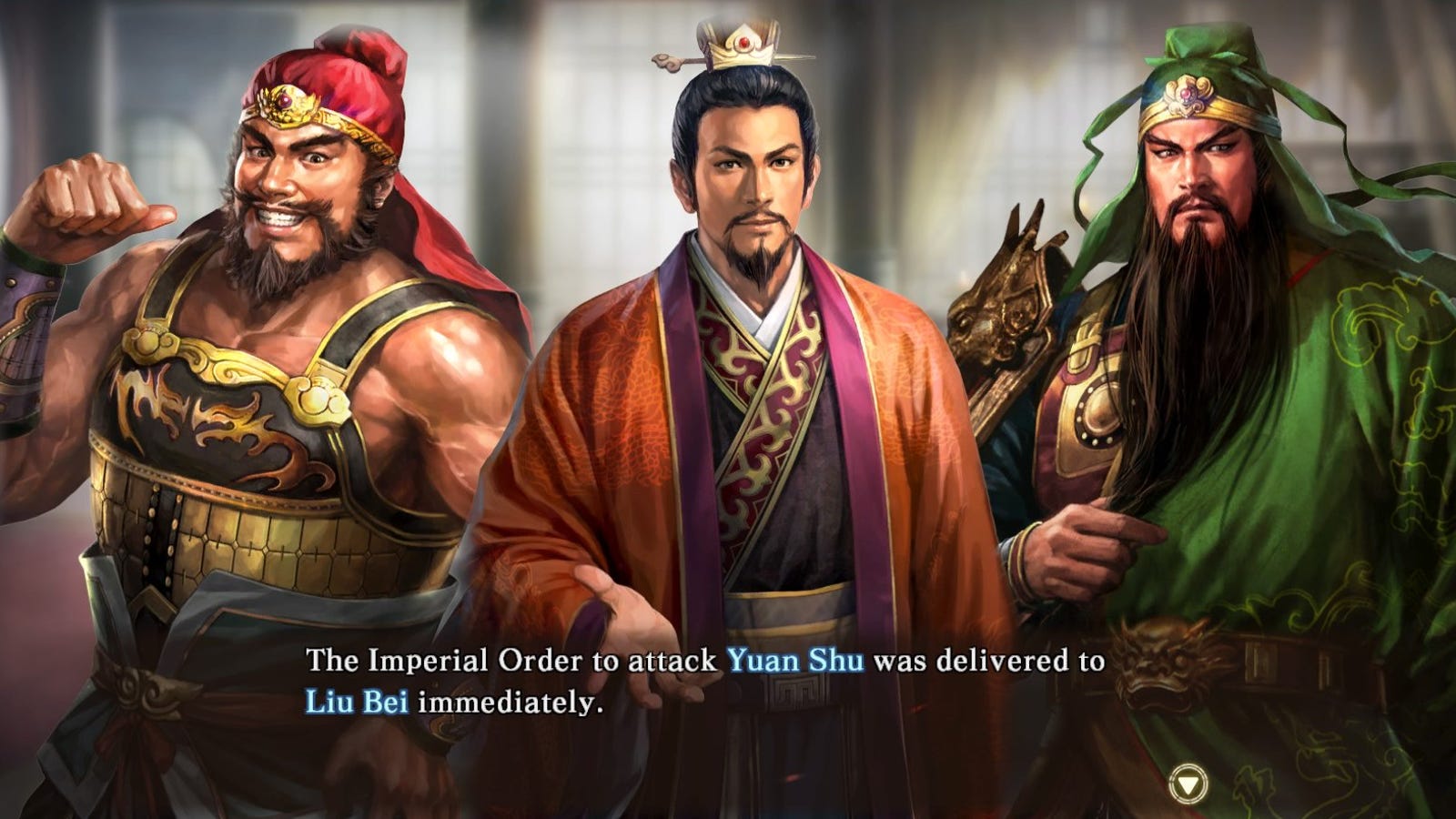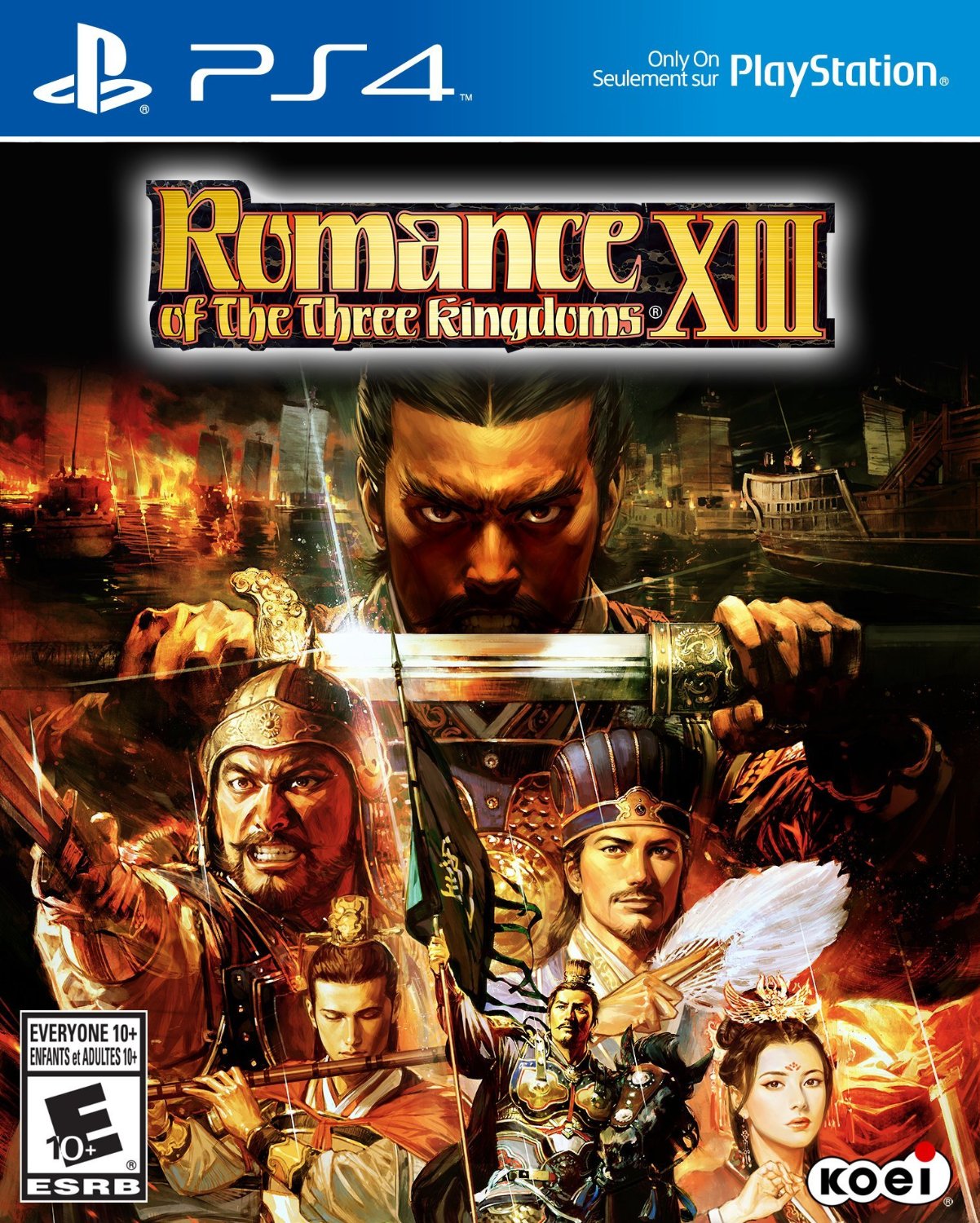

On all these occasions, no one could stand against you." I knew it when you attacked Lu Bu at Puyang and when you fought Zhang Xiu at Wancheng and when you met Zhou Yu at the Red Cliffs and when in Huarong Valley you encountered Guan Yu and on that day when you cut off your beard and threw away your robe at Tong Pass and when you hid in a boat to escape the arrows on the Yellow River.

"O Prime Minister, I know well that when you march out your army, you always conquer. Alas, Poor Villain: Cao Cao receives one of the longest poems in the book upon his death, almost entirely complimentary.Historically, Dong Zhuo and Lu Bu were merely described as "being as close as father and son" rather than there being an actual adoption, and Guan Ping was actually Guan Yu's biological son. Likewise, Guan Yu adopts the adult Guan Ping as his son. Adult Adoptee: Lu Bu is adopted by Dong Zhuo as an adult.Lady Wang Yi note While the novel left out her name, it was recorded down in history., Zhao Ang's wife, was the only woman to be recorded as actually fighting in that period when she took up arms and attempted to murder Ma Chao after he slaughtered her husband.Historically, she raised havoc on a regular basis and had to be monitored by Zhao Yun. Lady Sun (Whom you might know better as Sun Shangxiang in most opera adaptations and Dynasty Warriors), Sun Quan and Sun Ce's sister, practiced swordplay, has an entourage of a hundred maids decked out in armor and weapons, scared Liu Bei half to death on his wedding night, and scolds her brother's generals into submission when she eventually elopes with her husband.Zhurong, Meng Huo's wife, goes into battle against Shu and manages to capture a couple of Shu generals before getting captured herself - which is a pretty good record for the Nanman.You may mend your torn dress, but who can reattach a lost limb?" Then again, he's the one who quoted lore as saying that "Brothers are as hands and feet wives and children are as clothing. In a major example of Values Dissonance, no one in the story calls Liu Bei out on this. Probably because he was dropped on his head as a kid. The kid later grows up and loses the kingdom, and is considered by most readers to be completely useless. So what does Liu Bei do? He throws his kid to the ground, pissed that he nearly lost a great general. Abusive Parents: Liu Bei's infant son, Liu Shan, was lost at Chang Ban, so Zhao Yun made a selfless charge into enemy lines to bring the kid back.Abnormal Limb Rotation Range: Sima Yi could supposedly turn his head 180° to look behind him.Some of the scenes in the book never really happened, or did not happen as described That Other Wiki has a list. Luo Guanzhong's sources included not only historical records, but period Chinese operas, poetry and folktales as well. Very Loosely Based on a True Story: One early editor referred to it as 70% fact and 30% fiction.Stealth Parody: Despite having been written to satisfy the Imperial guidelines, Luo Guanzhong managed to sneak in a few subversions on the nature of loyalty.

Divided for Publication: Most publishers break the novel up into multiple parts, thanks to its length: at 800,000 words and 120 chapters, it's a Doorstopper.The site has added some annotations to help readers keep track of events and characters.
#ROMANCE OF THE THREE KINGDOMS FULL#
Interested tropers can find the full text of an older English translation, now in the public domain, here. And so the three kingdoms contend with one another over the century, and heroes rise and fall in the strife, until the nation is finally reunified.Īnd, as you'd expect from a pivotal work like this, it's managed to gather quite a collection of tropes. All seek to unify the nation for one reason or another, and claim the right to rule for their own. Gradually, out of the chaos, three kingdoms take shape: the kingdom of Shu, led by the virtuous Liu Bei (a distant cousin of the Emperor) and his sworn brothers, Guan Yu and Zhang Fei the kingdom of Wei, led by the scheming Cao Cao and the kingdom of Wu, led by the ambitious Sun family. The tale begins in the last days of the corrupt Han Dynasty, showing how the government and Emperor lost the "Mandate of Heaven" (天命), and the land fell into anarchy, with various warlords carving out their own territories in a struggle for supremacy.


 0 kommentar(er)
0 kommentar(er)
